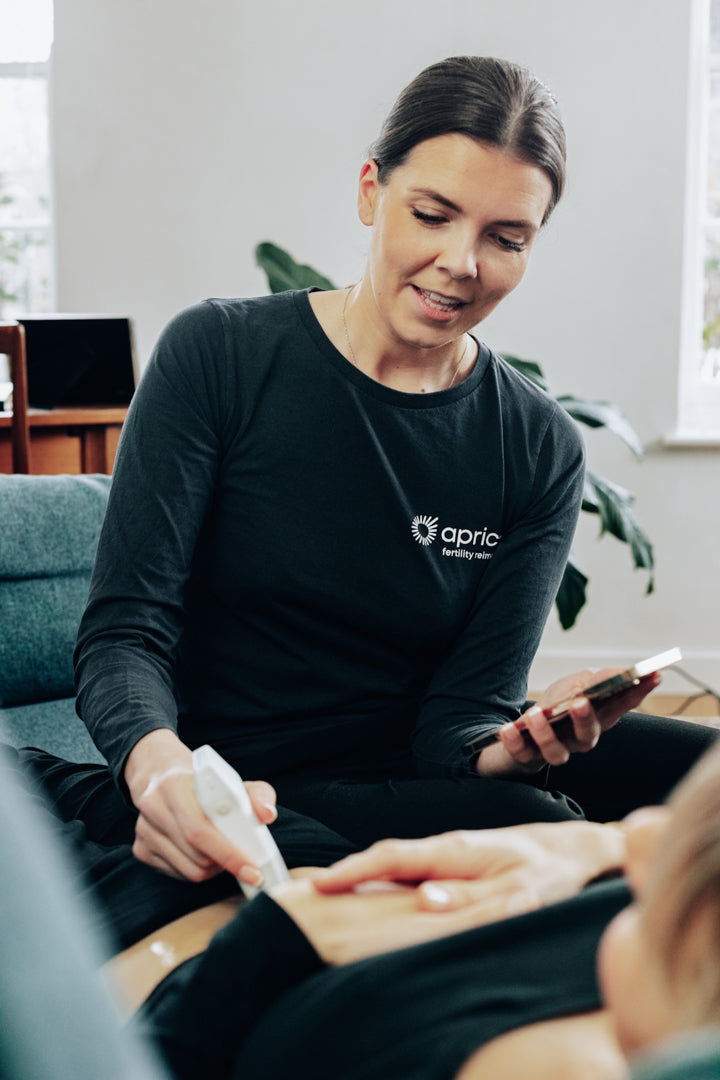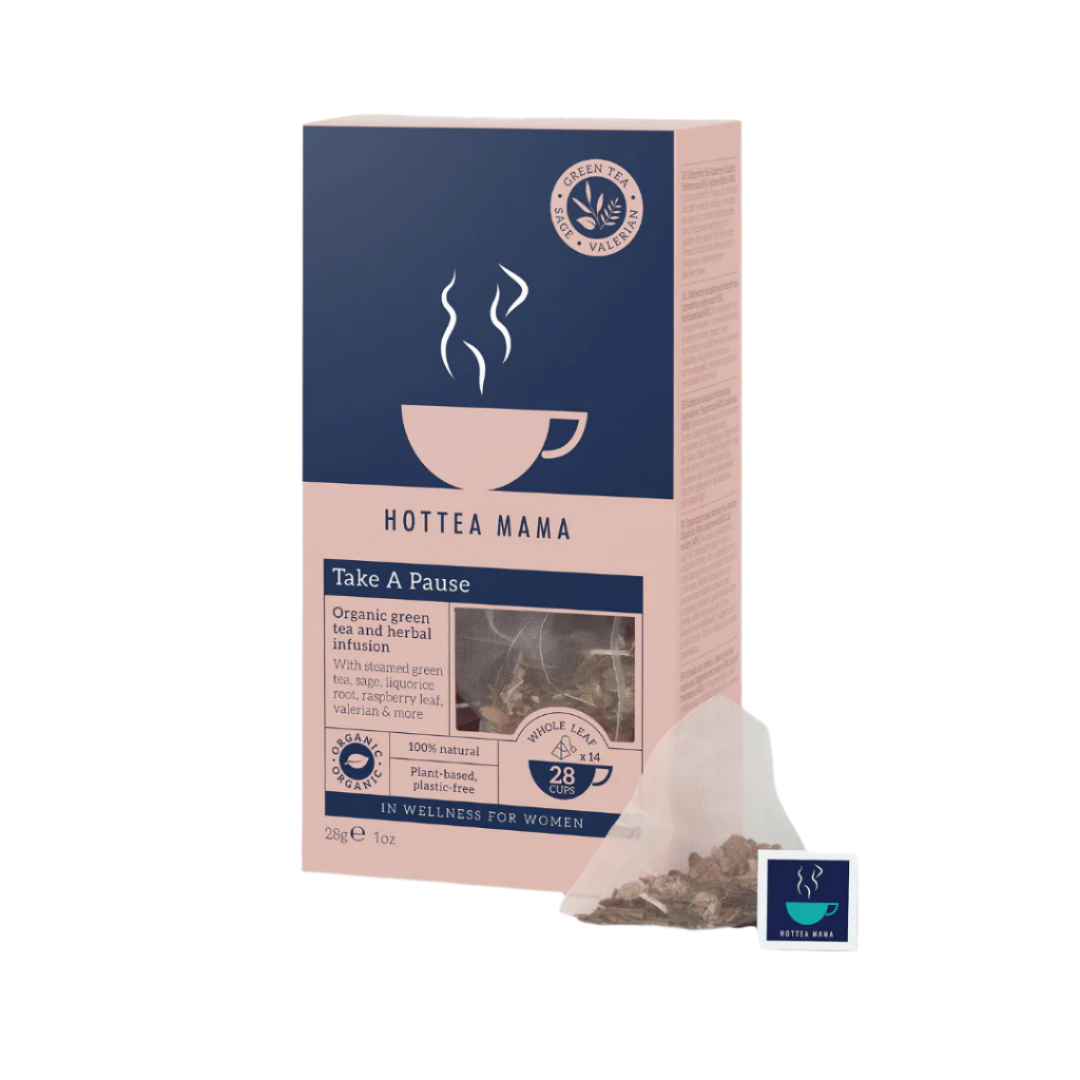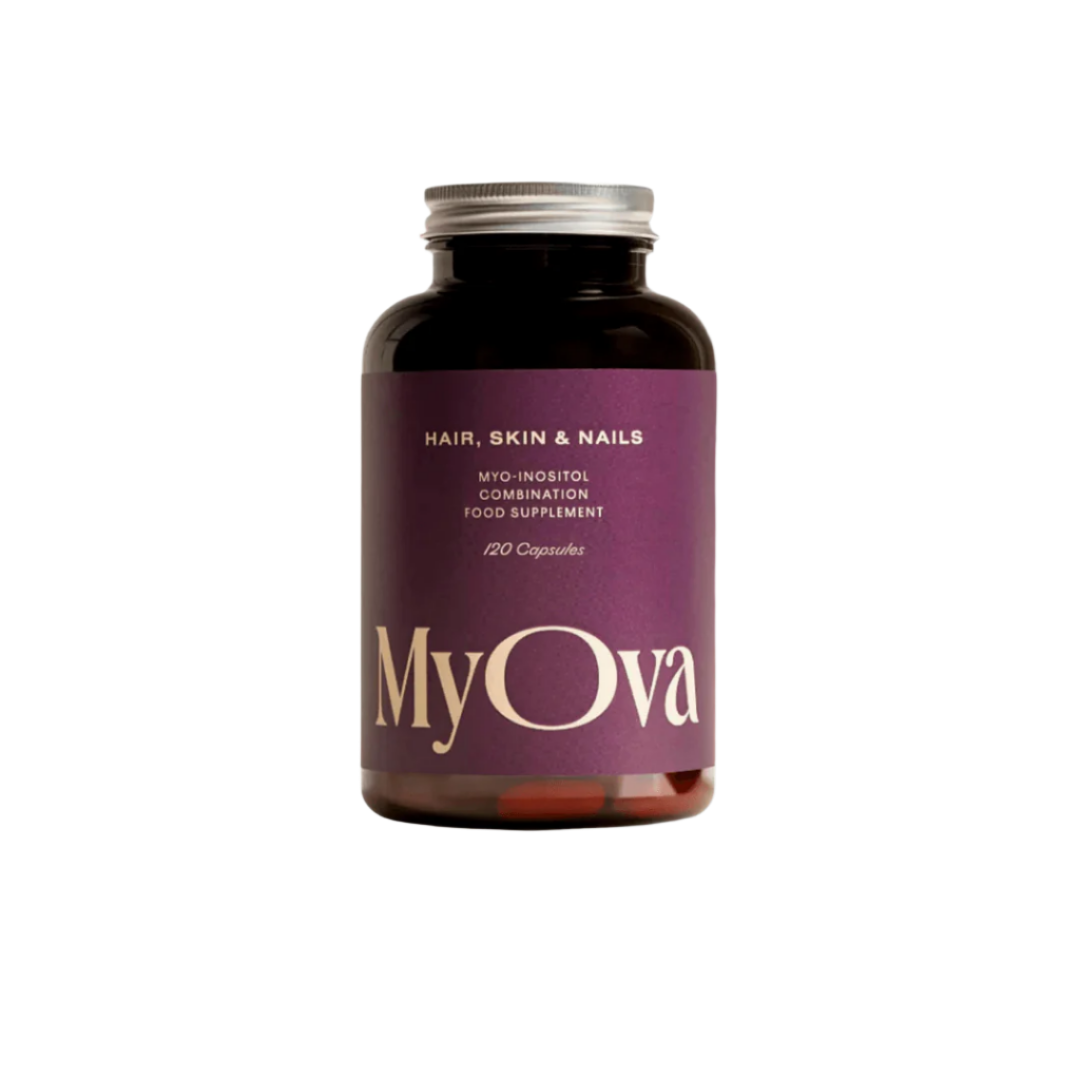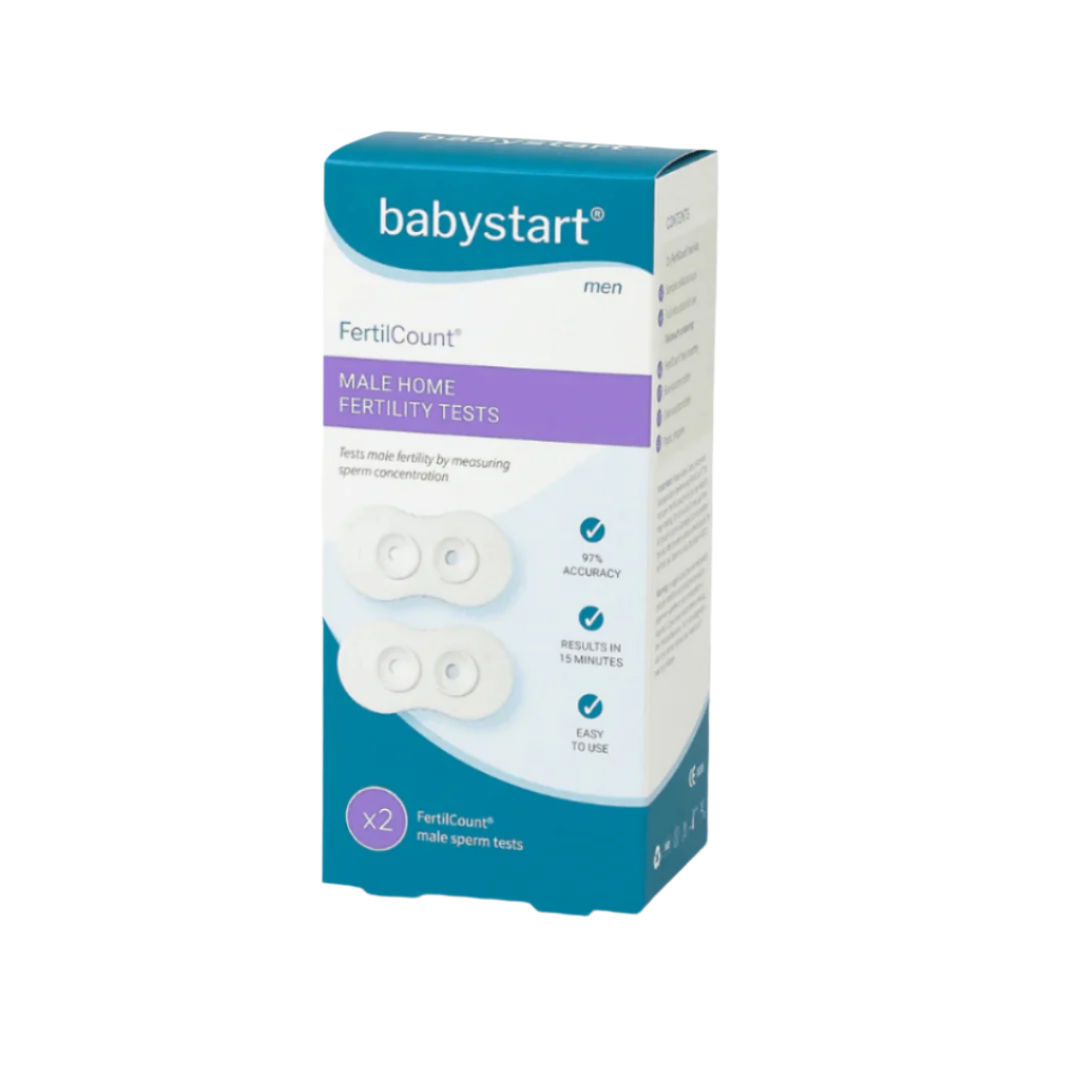The Journal
Coping with Christmas and Uncomfortable Questions About Your Fertility
The holiday season is a time of joy, togetherness, and celebration, but for many navigating fertility challenges, it can bring up difficult emotions and awkward conversations. Family gatherings often come with well-meaning but intrusive questions, and festive cheer can sometimes amplify feelings of isolation or pressure. Here’s how to protect your peace, handle tricky questions, and prioritise your emotional well-being during Christmas. Why Christmas Can Be Especially Hard For those facing fertility struggles, the holidays can feel like a spotlight is shining on what’s missing. The festive season often revolves around family and children, from school nativity plays to stories of "first Christmases." It’s natural to feel overwhelmed when conversations drift to topics like parenthood, pregnancy announcements, or plans for the future. Top Tips for Coping During Christmas Set Boundaries in Advance It’s perfectly okay to decide which gatherings you’ll attend and how long you’ll stay. Think about what environments will support your mental health and make plans accordingly. Communicate Clearly: Let family members know ahead of time if certain topics are off-limits. A polite but firm "I’d rather not discuss that, thank you," can go a long way. Have an Exit Plan: If conversations take a turn, excuse yourself for a quick walk, or designate a safe space where you can take a breather. Rehearse responses to tricky questions It’s not uncommon for well-meaning relatives to ask, “When are you having kids?” or “Isn’t it time for a little one?” Direct Responses: “That’s a personal topic, and I’d prefer to keep it private.” Humorous Deflections: “We’re focusing on surviving Christmas dinner first!” Change the Subject: Quickly shift focus by asking about their plans or sharing a light-hearted anecdote. Lean on your support network You don’t have to navigate the season alone. Whether it’s your partner, close friends, or an online community, share your feelings with people who understand. Buddy System: Attend gatherings with someone who knows your situation and can step in if conversations become too intrusive. Therapeutic Outlets: Journaling or speaking with a therapist can help process complex emotions. Practice self-care During a season full of giving, don’t forget to give yourself some grace and love. Schedule “You Time”: Take breaks for activities that bring you joy—whether it’s a walk in nature, a bubble bath, or a good book. Mindfulness Techniques: Practice deep breathing, meditation, or yoga to stay grounded. Writing a journal can really help. Limit Social Media: Curate your feeds to avoid potentially triggering posts, such as pregnancy announcements or family holiday photos. If you are actively trying to conceive, prioritising your reproductive health can bring a sense of empowerment. Exploring fertility support products can help you take proactive steps towards your journey. Whether it's supplements, ovulation trackers, or hormone balance aids, these products can provide additional reassurance and support. Celebrate your way There’s no rulebook for how to do Christmas. Create traditions that bring you happiness, even if they don’t involve children. Travel: Escape the usual routine by going on a holiday. Host Friends: Plan a festive gathering with others who may feel out of place during family-centric celebrations. Give Back: Volunteering or donating to causes you care about can be deeply fulfilling. A Final Word Remember, your feelings are valid, and your journey is your own. Coping with fertility challenges during Christmas may not be easy, but with the right tools and boundaries, you can create a season that feels a little more manageable. Take things one day at a time, focus on what brings you peace, and don’t hesitate to prioritise yourself.
Learn moreWinter Feel-Good Activities for Women: Embrace the Season with Joy
Winter Feel-Good Activities for Women: Embrace the Season with Joy Winter offers a unique opportunity to slow down, cosy up, and focus on self-care. While the colder months can sometimes feel dreary, they also provide a chance to indulge in feel-good activities that uplift your mood and nourish your well-being. Whether you’re looking to de-stress, connect with friends, or simply enjoy your own company, here’s a list of winter activities designed to help women make the most of the season. Cosy Up with Hygge-Inspired Moments The Danish concept of hygge is all about creating a sense of warmth and contentment. Find out more about Hygge in our blog here. Create a Cosy Space: Light candles, grab a soft blanket, and settle into your favourite chair with a good book or journal. Sip Something Warm: Indulge in herbal teas, spiced lattes, or hot chocolate topped with marshmallows for an instant mood boost. Move Your Body with Gentle Winter Workouts Staying active in winter can help combat seasonal sluggishness and keep your energy levels up. Yoga and Stretching: Practice yoga at home to relieve tension and boost your mental clarity. Online classes or apps make it easy to get started. Winter Walks: Bundle up and take a walk outdoors to soak up natural light and fight off winter blues. Getting just 5 minutes of natural light each day can make a difference. Pamper Yourself with Winter Self-Care The colder months are perfect for slowing down and focusing on your well-being. DIY Spa Day: Treat yourself to a face mask, a warm bath with essential oils, and a moisturising body scrub. Skincare Upgrade: Winter calls for richer moisturizers and hydrating treatments to protect your skin from the cold. Luna’s The Everything Oil has the perfect blend of ingredients for the winter months, you can find it here. Cook and Bake for Comfort Nothing says "winter feel-good" like a cosy day in the kitchen. Try New Recipes: Experiment with hearty soups, casseroles, or festive baked goods like spiced cookies or cinnamon rolls. Batch Cook: Prepare nourishing meals like stews and curries to enjoy throughout the week. The freezer is your best friend, batch cook and put away for lazier days. Connect with Loved Ones Winter is a great time to nurture your relationships. Host a Girls’ Night In: Organise a cosy evening with movies, hot drinks, and your closest friends. Craft Together: Take up a group craft project, such as knitting, candle-making, or holiday decoration workshops. Try making paper chains from book pages for a scandi-inspired feel. Explore Creative Hobbies Winter offers a quiet time to dive into creative pursuits. Learn Something New: Try out painting, journaling, or photography to express yourself and unwind. Craft Seasonal Decor: Create winter wreaths, handmade ornaments, or cosy knit scarves. Enjoy Indoor Activities When it’s too chilly to venture outdoors, there are plenty of ways to stay entertained indoors. Movie Marathons: Revisit your favourite films or explore a new series. If you haven’t watched Nobody Wants This on Netflix, where have you been? Puzzles and Games: Settle into a fun jigsaw puzzle or board game with family or friends. Practice Mindfulness and Gratitude Winter can be a reflective season, perfect for focusing on inner calm and positivity. Gratitude Journaling: Write down three things you’re grateful for each day to cultivate a positive mindset. It’s a great excuse to buy a cute new notepad anyway! Meditation: Dedicate a few minutes daily to meditation or breathing exercises to manage stress and increase focus. Explore Winter Fashion Stay warm and stylish with winter-friendly wardrobe upgrades. Layer Up: Invest in cosy knitwear, wool coats, and stylish boots. Accessorise: Experiment with scarves, hats, and gloves to add personality to your outfits. Plan Ahead for Spring Goals Winter is an excellent time for dreaming and planning. Set Goals: Reflect on personal or professional aspirations and create a vision board for the new year. Organise Your Space: Declutter and reorganise your home to create a fresh start for the coming season. Final Thoughts Winter doesn’t have to be a time for hibernation—it’s a season rich with opportunities for joy and self-care. From cosying up with a good book to exploring creative hobbies, there are countless ways to embrace the colder months while focusing on your well-being.
Learn moreHow to manage pain and prioritise comfort during winter
How to manage pain and prioritise comfort during winter Winter can bring unique challenges for women dealing with reproductive health concerns. Conditions such as menstrual cramps, endometriosis, and pelvic pain can feel more intense in cold weather, as colder temperatures may affect circulation and exacerbate muscle tension. Prioritising warmth, comfort, and targeted self-care during the winter months can help ease pain and improve overall well-being. How Winter Affects Women's Reproductive Health Cold weather can worsen discomfort in the reproductive system for several reasons: Muscle Tightness: Low temperatures can lead to pelvic muscles becoming tense, intensifying cramps and pain. Poor Circulation: Cold weather can restrict blood flow, potentially worsening menstrual pain or endometriosis symptoms. Seasonal Stress: The shorter days and holiday season can increase stress levels, potentially disrupting hormonal balance and exacerbating reproductive health issues. Pain Relief Tips for Reproductive Health During Winter Stay Warm with Heat Therapy Use a heating pad or hot water bottle on your lower abdomen to relieve menstrual cramps and relax pelvic muscles. Warm baths infused with Epsom salts can soothe muscles and reduce pelvic discomfort. Epsom salts also contain magnesium for an extra boost over the winter months. Support Circulation with Gentle Movement Low-impact exercises like yoga, Pilates, or walking can improve blood flow to the pelvic area. Even 5-10 minutes extra movement a day can help, don’t overwhelm yourself. Pelvic stretches, such as child’s pose or hip circles, can ease muscle tension and improve flexibility. Opt for Anti-Inflammatory Foods Incorporate warm, nutrient-dense foods like soups, stews, and herbal teas. Making a big batch of soup and popping some in the freezer is great for the days you haven’t got time to cook. Anti-inflammatory ingredients such as turmeric, ginger, and omega-3 fatty acids can help manage pain and reduce inflammation. Make your own by adding hot water to a cup with fresh ginger and a squeeze of honey and lemon. Manage Stress Levels Stress can intensify menstrual and reproductive health symptoms. Incorporate mindfulness practices such as meditation, journaling, or breathing exercises to stay grounded. Box breathing is a great place to start. Breathe in for 4 seconds, hold for 4 seconds, breathe out for 4 seconds, hold for 4 seconds. Repeat. Consider aromatherapy with calming scents like lavender or chamomile to promote relaxation. Menopoised’s Cool and Calm Aromatherapy Cream combines calming lavender with the moisturising properties of cocoa and shea butters, try it here. Layer Up to Protect Your Core Keeping your core warm can alleviate abdominal discomfort. Wear thermal layers or wrap a scarf around your waist when you’re outdoors. Hydrate and Moisturise Dry winter air can leave you dehydrated, which can exacerbate cramps and overall discomfort. Drink plenty of water and herbal teas to stay hydrated. Support your skin health with natural moisturisers to prevent winter dryness from adding to your discomfort. Special Considerations for Endometriosis and PCOS Endometriosis Heat therapy is particularly effective for easing the chronic pain associated with endometriosis. Consider portable heat wraps for on-the-go relief. Avoid inflammatory foods, such as processed snacks or sugary treats, which can worsen endometriosis symptoms during the festive season. PCOS (Polycystic Ovary Syndrome) Regular movement and balanced meals during winter can help maintain hormonal stability. Use herbal teas such as peppermint or cinnamon to support hormonal health and improve circulation. Hot Tea Mama’s Over The Moon tea helps with difficult PMS symptoms, you can find it here. When to Seek Medical Advice While these tips can help manage mild to moderate discomfort, it's essential to consult a healthcare professional if: Pain is severe or disrupts daily life. Symptoms worsen significantly during winter. New symptoms, such as heavy bleeding or unusual discomfort, arise. Conclusion Women’s reproductive health deserves extra attention during the winter months. By prioritising warmth, staying active, and incorporating mindful self-care practices, you can ease pain and discomfort effectively. Small lifestyle changes can make a big difference, ensuring that you enjoy the winter season feeling empowered and in control of your health.
Learn moreSecondary Infertility: Navigating the Journey of Conceiving Again by Apricity Fertility
Secondary Infertility: Navigating the Journey of Conceiving Again You've felt the joy of welcoming a child into your life—the first smile, the tiny fingers gripping yours, the milestones that fill your heart with pride. As your family grows, so does your dream of giving your child a sibling. But what happens when that dream is met with unexpected silence? When months turn into years of hoping, only to face the profound disappointment of a negative pregnancy test again and again? This is the hidden struggle of secondary infertility, a journey shrouded in confusion, isolation and heartache. While some couples conceive effortlessly, others face unexpected hurdles. Secondary infertility—the inability to conceive or carry a pregnancy to term after previously giving birth—is more common than people realise, affecting around 5% of the population, according to the NHS. Secondary infertility occurs when a couple has had one or more children previously, but now struggles to conceive without the use of fertility treatments. It's easy to assume that if you've had a child before, conceiving again should be straightforward. However, numerous factors can make subsequent pregnancies more challenging. Age, health conditions, and lifestyle changes can all impact your fertility. Common Causes of Secondary Infertility The causes of secondary infertility mirror those of primary infertility and can affect any stage of the conception process: Maternal age Fertility naturally declines after age 35. As women and those assigned female at birth age, both the quantity and quality of their eggs diminish. Male factor infertility Impaired sperm production or low sperm count can significantly affect the chances of conception. Ovulation disorders Conditions like Polycystic Ovary Syndrome (PCOS) can disrupt regular ovulation. Uterine or tubal issues Blocked or damaged fallopian tubes, often due to conditions like endometriosis or pelvic inflammatory disease, can prevent fertilisation. Lifestyle factors Excessive weight gain or loss, smoking, alcohol use, and stress can all impact fertility. For more detailed information on causes and treatments, read Apricity Fertility's page on secondary infertility. Why Is Secondary Infertility Primarily Privately Funded? Access to fertility treatments in the UK is often limited, especially for those experiencing secondary infertility. NICE guidelines recommend that women under 40 be offered three cycles of IVF on the NHS. However, local Clinical Commissioning Groups (CCGs) frequently impose additional criteria, such as not already having a child, effectively excluding many couples with secondary infertility from publicly funded treatment. This policy means that many couples must turn to private clinics, shouldering costs that can range from £5,000 to £10,000 per cycle. The financial strain can be immense, disproportionately affecting lower-income families and widening socio-economic disparities in access to fertility care. Private fertility services like Apricity Fertility offer innovative solutions to make treatments more accessible. By utilising technology and personalised care plans, they aim to reduce costs and improve success rates. Psychological and Mental Health: The Emotional Toll of Secondary Infertility The journey through secondary infertility is often fraught with complex emotions. Couples may often feel: Isolation, as friends and family often assume that having one child should be enough, leading to a lack of understanding and support. Guilt and shame, as parents may feel guilty for wanting another child or believe they are somehow at fault for their fertility struggles. Jealousy and sadness, as seeing others expand their families can trigger complex feelings in those struggling. A strain on their relationships, as stress can lead to tension between partners, affecting communication and intimacy. These emotional challenges are common and valid. Seeking support from mental health professionals specialising in fertility struggles can provide coping mechanisms and emotional relief. Support groups offer a safe space to share experiences and feelings with others who understand the journey. Seeking Support and Treatment Options Acknowledging the struggle is the first step toward finding a solution. Medical advancements offer various treatment options: Medication: drugs like Clomifene and Letrozole can stimulate ovulation. Surgery: procedures to repair blocked fallopian tubes or remove uterine fibroids. Assisted Reproductive Technologies (ART): options like IVF and IUI can assist in conception. Lifestyle changes: improving diet, reducing stress, and eliminating harmful habits can enhance your natural fertility levels. For those unable to access NHS-funded treatments, private clinics often provide alternative, and sometimes the only, pathways. Our partners at Apricity Fertility offer personalised treatment plans that focus on digital support to reduce the number of in-person journeys to a clinic from 10 to two, as well as offer transparent pricing and emotional support services to guide you through your unique fertility journey. What Not to Say to Someone Experiencing Secondary Infertility When someone is facing secondary infertility, well-intentioned comments can inadvertently cause pain. Here are some phrases to avoid: "At least you have one child." This minimises their current struggle and invalidates their feelings. "You should be grateful for what you have." Gratitude doesn't negate the desire to grow one's family. "Maybe it's not meant to be." Such fatalistic statements can be dismissive and hurtful. "Just relax and it will happen." Infertility is a medical condition, not a state of mind. Instead, you can offer support by saying: "I'm here for you if you want to talk." "I can't imagine how tough this is for you." "Is there anything I can do to help?" Final Thoughts Secondary infertility is a complex and often misunderstood experience. It's essential to recognise that your feelings are valid and that support is available. Open communication with your partner, seeking professional help, and connecting with support networks can make this journey more manageable. Remember, many have walked this path and found solace and success. With the right support and resources, you too can navigate the challenges of secondary infertility. See how Apricity Fertility can support you - book a free call at www.apricityfertility.com Remember, many have walked this path and found solace and success. With the right support and resources, you too can navigate the challenges of secondary infertility. See how Apricity Fertility can support you - book a free call at www.apricityfertility.com
Learn moreTempdrop Fertility Monitor: Why It’s the Best Choice for Tracking Your Cycle
In this blog, we’ll explore what makes Tempdrop unique, how it compares to other fertility monitors, and why it’s quickly becoming a top choice for women seeking accurate, reliable, and hassle-free cycle tracking.
Learn moreEmbracing Hygge to Thrive Through the Winter Months
Discover how the Danish concept of hygge can help you find warmth, comfort, and joy during winter. Learn simple tips to embrace cosiness and well-being as the days get colder.
Learn moreBenefits of Seed Cycling for Fertility
Seed Cycling for Fertility: A Natural Approach to Hormonal BalanceSeed cycling has become a popular method for those looking to support hormonal balance and boost fertility naturally. This simple practice involves consuming specific types of seeds at different phases of the menstrual cycle, aiming to support the body’s natural hormone rhythms. In this article, we’ll dive into the details of seed cycling, its potential fertility benefits, and how you can get started. What is Seed Cycling? Seed cycling is a holistic practice that aligns seed consumption with different phases of the menstrual cycle. The goal is to balance estrogen and progesterone levels by eating seeds rich in nutrients that support these hormones at specific times.The menstrual cycle is divided into two main phases:- Follicular Phase (Days 1-14): From the first day of menstruation to ovulation.- Luteal Phase (Days 15-28): From ovulation to the start of the next period.In each phase, different seeds are consumed to support hormone production and balance:- Follicular Phase: Flaxseeds and pumpkin seeds are consumed.- Luteal Phase: Sesame seeds and sunflower seeds are recommended.How Does Seed Cycling Work?Each type of seed provides nutrients that can promote hormone health: - Flaxseeds: Rich in lignans, which are compounds that can help regulate estrogen levels. Lignans may bind to excess estrogen in the body, helping to balance estrogen levels during the follicular phase. - Pumpkin Seeds: High in zinc, which plays a role in preparing the body for ovulation. Zinc is also essential for hormone production, making it beneficial for egg health and ovulation. - Sesame Seeds: Also high in lignans, these seeds are consumed in the luteal phase to help support progesterone production. Progesterone is crucial for supporting a potential pregnancy and regulating menstrual cycles. - Sunflower Seeds: Packed with selenium, an antioxidant that can help detoxify the liver, assisting the body in processing hormones. Sunflower seeds also contain vitamin E, which is essential for reproductive health.Benefits of Seed Cycling for FertilityWhile scientific research on seed cycling is still emerging, many people report experiencing positive effects on their hormonal health and menstrual cycle, which may have indirect benefits for fertility. Here are some of the ways seed cycling may support reproductive health:Promotes Hormonal BalanceSeed cycling can help balance estrogen and progesterone levels throughout the menstrual cycle, which is vital for healthy ovulation and conception. Balanced hormone levels may improve the chances of regular ovulation, a key factor in fertility.Supports Menstrual RegularityMany people find that seed cycling helps regulate their menstrual cycles, making it easier to track ovulation and fertility windows. Regular cycles can make it easier to time conception and increase the chances of pregnancy.Supports Egg HealthThe nutrients found in seeds, such as zinc, selenium, and vitamin E, are essential for maintaining the health of egg cells. Zinc, for example, is crucial for cell division and helps to prepare the body for ovulation. Selenium acts as an antioxidant, protecting egg cells from oxidative stress, which can affect fertility.Assists in DetoxificationFlaxseeds, in particular, have compounds that can help the liver metabolize excess estrogen. Since estrogen dominance can lead to hormonal imbalances, seed cycling may support healthy estrogen levels and help reduce symptoms associated with hormonal imbalance.Supports Overall Reproductive HealthEssential fatty acids, antioxidants, and vitamins found in seeds also promote a healthy reproductive system, which is important for successful conception. Vitamin E, for example, supports uterine lining health, which is necessary for a fertilized egg to implant.How to Start Seed Cycling for FertilitySeed cycling is easy to start and can be adapted to any diet. Here’s a quick guide to get you going:Step 1: Determine Your Cycle PhasesTrack your menstrual cycle to identify the follicular and luteal phases. If your cycle is irregular, consider starting with a basic 28-day cycle structure until your cycle becomes more regular:- Follicular Phase: Days 1-14 (Menstruation to Ovulation)- Luteal Phase: Days 15-28 (Ovulation to Start of Next Period)Step 2: Incorporate the Right Seeds in Each Phase- Follicular Phase (Days 1-14): - Consume 1 tablespoon each of ground flaxseeds and pumpkin seeds daily. - Add them to smoothies, oatmeal, salads, or yogurt for easy integration into your diet.- Luteal Phase (Days 15-28): - Consume 1 tablespoon each of ground sesame seeds and sunflower seeds daily. - Like with the follicular phase, you can mix the seeds into various foods for convenience.Step 3: Stick with It ConsistentlyConsistency is key with seed cycling, as it can take several months to see potential benefits. Aim to eat the recommended seeds daily during each phase.Practical Tips for Seed CyclingHere are some tips to make seed cycling a part of your daily routine:- Use Ground Seeds: Ground seeds are easier to digest and allow your body to absorb the nutrients more effectively.- Store Seeds Properly: To maintain their nutrient quality, store seeds in an airtight container in the fridge or freezer.- Add to Foods You Enjoy: Try incorporating seeds into meals and snacks you already eat regularly to make it easy to stick to the practice.- Be Patient: Like many natural approaches, seed cycling may take a few cycles to show noticeable benefits. Who Should Consider Seed Cycling?Seed cycling can be a gentle and natural way to support hormonal health for those experiencing:- Irregular menstrual cycles- Symptoms of hormonal imbalance, such as PMS, mood swings, or low energy- Issues with ovulation or conceptionWhile seed cycling is generally safe for most people, those with specific health concerns, such as hormonal disorders or food allergies, should consult a healthcare provider before starting.Frequently Asked Questions About Seed Cycling and Fertility 1. Can I start seed cycling if I don’t have a regular cycle? Yes! You can use the general 28-day cycle as a guide. Over time, seed cycling may help promote regularity in your menstrual cycle.2. How long does it take to see results with seed cycling?Most people start to notice changes within 2-3 months, but it may vary. Consistency is important for the best results.3. Can I practice seed cycling if I’m pregnant?If you’re pregnant, consult your healthcare provider before making dietary changes. Seed cycling is mainly beneficial for balancing hormones before conception.4. Is there any scientific evidence for seed cycling?While research on seed cycling specifically is limited, there is evidence that nutrients in seeds, such as zinc and lignans, can support hormone health, which may indirectly benefit fertility.Final Thoughts on Seed Cycling for FertilitySeed cycling is a gentle, food-based approach to support hormonal balance and may offer benefits for those seeking to improve their reproductive health naturally. By focusing on nutrient-rich seeds during specific phases of the menstrual cycle, seed cycling aims to support the body’s hormonal balance, which is essential for fertility and overall reproductive health.As with any dietary change, it’s a good idea to consult with a healthcare provider, especially if you have existing hormonal issues or are actively trying to conceive. Seed cycling, paired with a balanced diet and a healthy lifestyle, may provide natural support for your fertility journey. Thanks for reading our content, if you have found this to be beneficial then please share, femme.
Learn moreFertility Awareness Week: Embracing Passion and Hobbies to Support Your Mental Wellbeing
Fertility Awareness Week is an important time to acknowledge and bring attention to the journey of those trying to conceive. For many, the road to parenthood can be long and emotionally challenging, with numerous ups and downs. It’s during these times that prioritising mental wellbeing becomes crucial, and one powerful way to support emotional health is by finding joy, comfort, and release through passions and hobbies. Having an interest to dive into beyond fertility can be a life-enriching addition, helping ease stress, foster resilience, and bring balance to the journey. In this blog, we’ll explore the significance of Fertility Awareness Week and discuss how hobbies can provide an emotional lifeline for anyone navigating the complexities of fertility challenges. What is Fertility Awareness Week? Fertility Awareness Week is dedicated to raising awareness, breaking stigmas, and offering support to those dealing with infertility or struggling to conceive. It’s a time for educating the public, providing resources, and fostering a supportive community. With around one in six couples worldwide experiencing fertility issues, this week sheds light on a topic that can feel isolating for those going through it. By promoting conversation, sharing resources, and encouraging openness, Fertility Awareness Week aims to bring hope and understanding to a topic often shrouded in silence. Why Mental Wellbeing is Essential on the Fertility Journey The fertility journey can be emotionally taxing, filled with highs and lows, waiting periods, and a lot of uncertainty. Feelings of anxiety, sadness, frustration, and sometimes even isolation are common. Studies have shown that those facing infertility often experience stress levels comparable to those dealing with chronic illness. Therefore, it’s essential to nurture mental and emotional health throughout this process. One effective way to do so is by finding fulfilling activities that provide a sense of joy, distraction, and accomplishment. The Power of Hobbies and Passions During the Fertility Journey Engaging in hobbies or passions can be a wonderful, transformative way to find peace amidst the storm of fertility struggles. Here’s why hobbies can be so beneficial: 1. A Healthy Distraction Hobbies offer a break from the constant focus on fertility. When trying to conceive, it can be easy to become consumed by tracking cycles, managing appointments, and reading every piece of advice. A hobby creates a “time out” space, allowing you to shift your focus to something unrelated to fertility. Whether it’s painting, gardening, knitting, or hiking, engaging in a hobby helps bring moments of mental relief and respite. 2. A Way to Connect with Yourself and Others Infertility can sometimes feel like it defines you, but pursuing a hobby reminds you of the person you are beyond the journey. Finding joy in creative or physical outlets reconnects you with your strengths, talents, and sense of self-worth. Many hobbies, such as yoga or a book club, can also open up opportunities to connect with others who share similar interests. Social support is essential for mental wellbeing, and a hobby-centered community can provide meaningful connections and friendships outside of fertility-related concerns. 3. Reduces Stress and Anxiety Engaging in hobbies has been shown to lower cortisol levels (the stress hormone) and boost endorphins, the brain’s natural mood enhancers. Physical activities like running, dancing, or swimming can be excellent for stress relief, as can more meditative pursuits like painting, pottery, or journaling. These outlets provide a healthy way to channel emotions, reducing anxiety and offering a sense of calm and control. 4. Promotes Mindfulness and Presence Many hobbies, especially those involving art or nature, encourage mindfulness, a practice that promotes living in the present moment. Mindfulness can be especially beneficial during the fertility journey, as it helps reduce rumination and anxiety about the future. Practicing mindfulness through hobbies like cooking, gardening, or drawing can help you feel grounded and remind you to appreciate life beyond the realm of fertility. 5. Enhances Self-Esteem and Resilience Fertility challenges can take a toll on self-esteem, especially when faced with disappointment. A hobby provides an area where you can set goals, make progress, and experience success. Completing a piece of art, learning a new skill, or mastering a recipe can bring a sense of accomplishment and boost self-worth. These wins, no matter how small, reinforce resilience and confidence, reminding you of your capability to achieve things outside of the fertility journey. 6. Provides a Sense of Purpose and Fulfillment The journey to parenthood often brings up questions of purpose, and waiting or struggling with fertility can feel like time is passing without progress. Pursuing a passion brings purpose back into daily life, filling days with meaningful activities that feel enriching. This sense of fulfillment can help balance feelings of frustration or impatience. Ideas for Hobbies to Support Mental Wellbeing If you’re considering taking up a new hobby or reigniting a previous passion, here are some ideas that can provide relaxation, fulfillment, and joy during the fertility journey: Creative Outlets: Painting, drawing, crafting, photography, or music can offer an emotional release and let you express yourself. Gardening: Tending to plants and watching them grow is incredibly grounding and can bring feelings of accomplishment. Cooking or Baking: Experimenting in the kitchen can be a fun way to nurture yourself with nutritious foods while enjoying the creative process. Yoga or Meditation: Physical movement combined with mindfulness is beneficial for stress reduction and emotional balance. Reading or Writing: Reading can be an escape from reality, while journaling helps to process and release emotions in a safe space. Physical Activities: Running, dancing, swimming, or hiking release endorphins and provide a natural mood boost. Community Involvement: Volunteering or joining a local club can foster social connections and give a sense of purpose. Tips for Staying Motivated with Hobbies Maintaining a hobby can sometimes be challenging, especially when dealing with stress. Here are some tips to stay motivated and committed: Set Small Goals: Whether it’s finishing a book or completing a small art project, small goals make progress achievable and rewarding. Create a Schedule: Set aside dedicated time each week for your hobby. It doesn’t have to be long—just a regular commitment. Celebrate Progress: Even small achievements deserve recognition. Celebrate each step forward and enjoy the journey. Try New Things: If one hobby isn’t quite working, don’t be afraid to try something else! You may discover a passion for something you never considered. Final Thoughts on Fertility Awareness and Mental Wellbeing During Fertility Awareness Week, we honor the resilience and strength of those on the fertility journey. Remember that while your journey may be challenging, it’s okay to seek comfort and joy in other areas of life. Hobbies can provide that much-needed space to breathe, reconnect, and find happiness outside of fertility concerns. Embrace this time as an opportunity to explore interests that fulfill you and bring a sense of peace. By investing in your mental and emotional wellbeing, you are strengthening yourself for whatever the future holds. Through finding balance and moments of joy, you can bring positivity and resilience into every part of your journey. Let’s use Fertility Awareness Week as a reminder to support one another, raise awareness, and celebrate the power of passion, hobbies, and mental wellbeing.
Learn moreIrregular Periods During Perimenopause: Recognising Symptoms and Using Cycle Tracking for Support
Learn how irregular periods are a common symptom of perimenopause, what to expect from your cycle, and how tracking your symptoms can help manage this life transition.
Learn more
In The Press
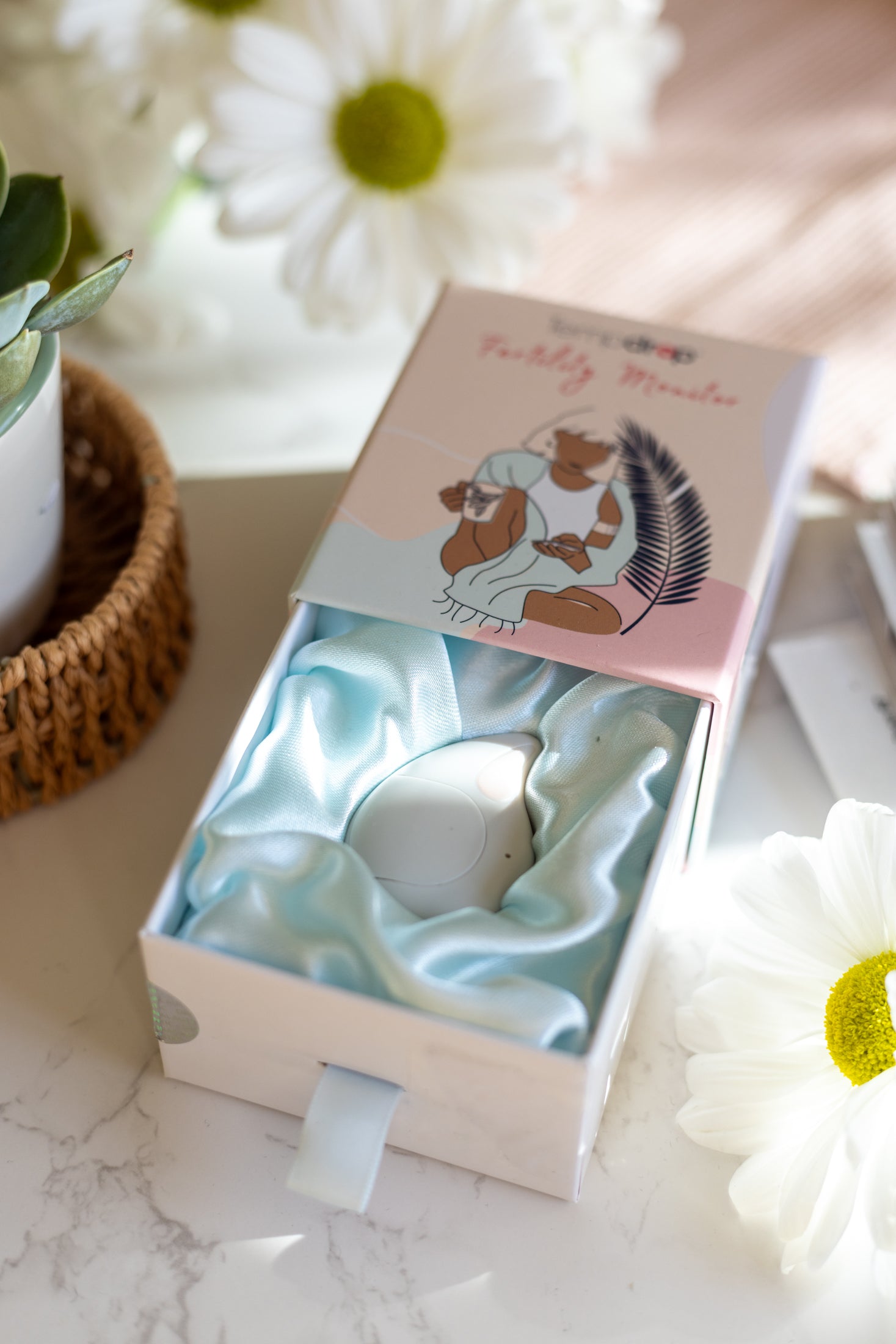
Simplify Your Fertility Tracking with Tempdrop
Take the guesswork out of cycle tracking with Tempdrop, the smart wearable thermometer that fits seamlessly into your routine. Designed to learn your unique patterns, it provides accurate, reliable insights without the hassle of early wake-ups or daily charts.






